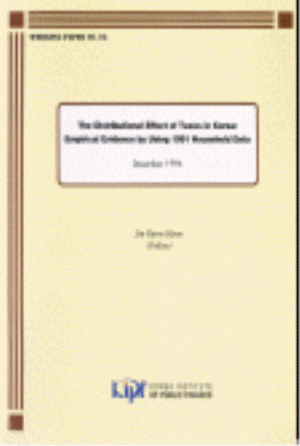The Distributional Effect of Taxes in Korea: Empirical Evidence by Using 1991 Household Data
- Keyword
- 주택소유, 소득분배, 지니계수
- Title
- The Distributional Effect of Taxes in Korea: Empirical Evidence by Using 1991 Household Data
- Authors
- 현진권
- Issue Date
- 1996-12-01
- Publisher
- KIPF
- Page
- pp. 18
- Abstract
- This Study shows the distributional effect of taxes by using 1991 Korean household micro-date. Urban and rural household data are merged into one dataset for the analsysis. We gross-up urban household survey data following the method developed by Atkinson, Gomulka, and Sutherland(1988). We apply several indices to measure the level of income distribution and distributional effect of taxes. Our data on income distributon in Korea before taxes and social security benefits shows that the bottom 10% income group has 3.09% of the total income, and the top 10% income group has 25.01%, corresponding to a Gini coefficient of 0.3138. The Korean progressive income tax system shows distributional effects, yielding Gini coefficients that ranged from 0.3138 to 0.2975. However, indirect taxes including the special excise tax,liquor tax, and value added tax do not have the distributional effect.
- Keywords
- 주택소유, 소득분배, 지니계수
